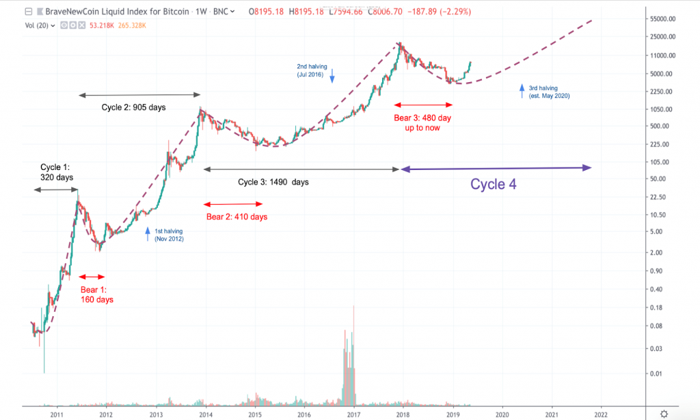The recent movements in the China Yuan Bitcoin relationship have sparked considerable interest in the cryptocurrency market. As the Chinese yuan depreciates beyond 7.2 per U.S. dollar, analysts are observing a potential shift that could favor Bitcoin (BTC). With the backdrop of increasing tariffs and economic pressure from the U.S., many believe this could catalyze significant capital flight into Bitcoin, reigniting bullish sentiments for the cryptocurrency. Analysts are now questioning how this Yuan depreciation might influence Bitcoin bullish trends, especially given the historical correlation between the two. However, navigating the complexities of cryptocurrency regulations in China remains a critical factor in determining the sustainability of this trend.
In light of recent financial developments, the interplay between the Chinese currency and Bitcoin is becoming increasingly prominent. As the yuan weakens amid economic tensions, many investors are turning their attention toward digital currencies as a safer haven. This transition, often characterized as capital escape into cryptocurrencies, raises numerous questions in the context of China’s ongoing struggle with cryptocurrency regulations. The broader implications of this scenario not only pertain to Bitcoin’s price movements but also to the potential impact on the global economy, considering the historical patterns observed during periods of yuan depreciation. With analysts predicting a bullish outcome for Bitcoin amidst these fluctuations, the evolving landscape warrants careful observation.
The Impact of Yuan Depreciation on Bitcoin Investments
The recent decision by China to allow the yuan to depreciate beyond the critical 7.2 mark against the U.S. dollar has sparked considerable interest among bitcoin investors. Historically, such moves by the People’s Bank of China (PBOC) have led to a surge in investments in cryptocurrencies, primarily Bitcoin. Analysts believe that as the yuan loses value, Chinese investors will seek alternative assets to preserve their wealth, with bitcoin emerging as a popular choice during times of economic uncertainty.
In 2015, a similar situation unfolded when the yuan was devalued, leading to increased capital flight into bitcoin. Back then, bitcoin experienced a significant bullish trend following the yuan’s depreciation. The global economic landscape has evolved since; however, the fundamental investor behavior remains unchanged. A weaker yuan not only encourages local investors to flock towards cryptocurrency investments as a hedge against inflation but also positions bitcoin as a more valuable asset amidst declining fiat currencies.
China Yuan Bitcoin: A Bullish Intersection
As the tension between the U.S. and China escalates, the correlation between the China yuan’s depreciation and bitcoin has become increasingly evident. The yuan’s current status as a focal point of economic pressure creates an interesting juxtaposition for cryptocurrency enthusiasts who view bitcoin as a refuge. With China allowing a weakened yuan, investors may feel compelled to pivot towards bitcoin to safeguard their assets, enhancing its growth potential in the market.
This shift towards bitcoin is not merely driven by current events but is also a response rooted in a broader historical trend observed during prior instances of yuan depreciation. Cryptocurrency’s appeal during financial instability is substantial, leading to speculation that the depreciation of the yuan could act as a catalyst for a bitcoin bull run. Investors might interpret this as an opportunity to capitalize on bitcoin’s growing adoption in the face of an uncertain economic landscape.
China’s Economic Impact and Bitcoin’s Future
The economic landscape in China remains precarious, particularly following the recent yuan depreciation. This situation not only affects domestic markets but also ripples through the global economy, influencing investor sentiment towards various assets. As the yuan continues to struggle, the potential for bitcoin to rise in value as a safe haven becomes more pronounced. Economic impact assessments indicate that capital flight into cryptocurrencies could emerge as a primary response from anxious investors seeking stability amid declining currency values.
Further exacerbating the scenario, analysts predict that China’s ongoing economic turbulence may lead to more strategic shifts in policy, particularly regarding cryptocurrency regulations. The intersection between a weakening yuan and favorable conditions for bitcoin creates a unique opportunity for investors looking for growth. Understanding China’s economic movements will be crucial for investors as they navigate the complexities of the cryptocurrency landscape, particularly the capitalization on bitcoin as a potential anchor in volatile conditions.
Capital Flight: Bitcoin as the Ultimate Haven
The current environment of capital flight from China is a significant factor reshaping the dynamics between the yuan and bitcoin. With local investors increasingly wary of the yuan’s declining value, many are seeking refuge in bitcoin and other digital assets. This trend reflects a broader strategy among investors to protect their wealth against local currency depreciation. Analysts anticipate that a continued flow of capital into bitcoin can lead to substantial price increases, further solidifying its role as a strategic asset in turbulent financial times.
The potential for bitcoin to act as a safe haven during capital flight is underscored by its limited supply and decentralized nature. Unlike fiat currencies, which can be manipulated by government policies, bitcoin provides a hedge against these uncertainties, making it increasingly attractive to individuals and institutions alike. As capital continues to flee China’s shores, the demand for bitcoin could skyrocket, leading to unprecedented price levels, resulting in a bullish cycle that pushes the cryptocurrency into new all-time highs.
Navigating Cryptocurrency Regulations in China
As bitcoin prices potentially surge due to the depreciation of the yuan, it’s important to consider the regulatory environment in China. Despite favorable conditions for growth, China’s government has historically taken a strong stance against cryptocurrency, imposing stringent regulations aimed at curbing financial risks. This regulatory framework poses significant challenges for investors looking to diversify into bitcoin. The recent mandates requiring banks to monitor international crypto transactions are a prime example of how regulation can restrict capital movement.
Moreover, as market dynamics change, the legal landscape surrounding bitcoin transactions may also evolve. Investors need to remain informed about these developments, as regulatory uncertainties may deter capital flight into cryptocurrencies. Despite the bullish signals prompted by yuan depreciation, the potential for regulatory crackdowns presents hurdles that could limit the extent to which bitcoin benefits from this economic situation. Understanding these regulatory implications is key for investors aiming to navigate the complex interplay between yuan depreciation and bitcoin investments.
The Future of Bitcoin Amid Economic Pressures
The outlook for bitcoin amidst current economic pressures is increasingly positive, especially with China’s recent decisions affecting the yuan. As the central bank hints at allowing for a weaker currency, the implications for bitcoin are profound. Historical patterns suggest that when the yuan depreciates, there tends to be a notable influx of capital into cryptocurrencies, primarily bitcoin. This suggests that investors are betting on bitcoin’s resiliency and potential for growth as a counterbalance to local economic declines.
Bitcoin’s adaptability to changing economic climates positions it as a frontrunner for investment during periods of uncertainty. As investors become increasingly aware of the potential risks in fiat currencies, the allure of cryptocurrency as an alternative store of value becomes clear. The dynamics of the current economic environment underscore the importance of bitcoin’s role as a potential lifeline for those seeking to protect their wealth against the depreciation of the yuan, promising a bullish trend ahead.
Historical Trends: How Yuan Depreciation Has Influenced Bitcoin
Historical trends offer valuable insights into the connection between yuan depreciation and bitcoin investment behavior. In instances where the yuan has experienced significant declines, there has been a marked increase in bitcoin demand. Investors typically seek out stable, appreciating assets to counter local currency devaluation, and bitcoin has often emerged as a preferred alternative during these events. The pattern documented through previous cycles suggests that the current scenario may also lead to increased investment activity in bitcoin.
In August 2015, for instance, the yuan’s dramatic depreciation catalyzed a migration of capital into bitcoin, propelling its value significantly upward within months. This trend is pertinent today as financial pressures mount on China’s economy, prompting local investors to reconsider their investment strategies. By examining these historical precedents, investors can better anticipate shifts in bitcoin demand relative to the strength of the yuan, reinforcing the cryptocurrency’s bullish outlook in the face of economic adversity.
Investor Sentiment on Bitcoin During Economic Shifts
Investor sentiment regarding bitcoin during significant economic shifts remains cautiously optimistic. The weakening yuan has an immediate psychological impact on investors, often leading to a flight towards alternative assets like bitcoin. Market sentiment analyses indicate that many view bitcoin not only as a speculative investment but also as a viable strategy for wealth preservation during currency depreciation. This sentiment may drive further interest and therefore demand for bitcoin, even amidst an increasingly strict regulatory backdrop.
Ultimately, investor behavior tends to reflect broader economic conditions. As more individuals recognize the potential of bitcoin as a response to the economic subversion stemming from yuan depreciation, we may expect to see both retail and institutional investors actively allocating funds into the cryptocurrency. Thus, the current economic environment could catalyze a new wave of investment enthusiasm, underlining bitcoin’s reputation as a dominant player in times of financial distress.
Anticipating Future Bitcoin Movements From Yuan Trends
Anticipating future movements in bitcoin requires a keen understanding of the underlying trends associated with the yuan. As the PBOC continues to manage the yuan’s depreciation, the historical correlation between the currency and bitcoin pricing may serve as a predictive tool for investors. By examining the reactions of bitcoin in response to prior yuan devaluations, analysts can develop forecasts for upcoming volatility in the cryptocurrency markets, especially if capital flight becomes a persistent trend.
Going forward, the likelihood that the yuan will face additional depreciation prompts a necessary vigilance for bitcoin investors. Monitoring economic indicators and regulatory developments in China will be crucial in determining how bitcoin reacts to macroeconomic shifts. Investors who stay abreast of these trends may find lucrative opportunities in the unfolding narrative of the yuan’s impact on bitcoin, aligning their strategies with both historical precedents and evolving market conditions.
Frequently Asked Questions
How does China Yuan depreciation affect Bitcoin investments?
China’s yuan depreciation can lead to increased interest in Bitcoin as a hedge against currency weakness. Investors may seek to shift their capital into Bitcoin to protect their wealth from the declining value of the yuan, resulting in potential bullish trends for Bitcoin.
Is the depreciation of the Yuan a signal for a Bitcoin bull run?
Yes, historically, when the Yuan depreciates, it has often led to increased capital flight into Bitcoin. Analysts suggest that this trend could trigger a significant bull run for Bitcoin, as seen during previous periods of Yuan weakness.
What are the implications of capital flight to Bitcoin due to Yuan depreciation?
Capital flight from the Yuan to Bitcoin can create upward pressure on Bitcoin’s price, leading to bullish market conditions. This shift occurs as investors seek more stable assets amidst economic uncertainty and regulatory concerns related to the Yuan.
How do cryptocurrency regulations in China impact Bitcoin amid Yuan depreciation?
China’s stringent cryptocurrency regulations create challenges for both individuals and institutions wishing to invest in Bitcoin during times of Yuan depreciation. These laws could limit the flow of capital into Bitcoin, potentially dampening the expected bullish momentum when the Yuan weakens.
What is the relationship between China’s economic policies and Bitcoin?
China’s economic policies, including Yuan depreciation, can directly impact Bitcoin’s market dynamics. As the government allows the Yuan to weaken, it may inadvertently bolster demand for Bitcoin as an alternative investment, promoting a bullish sentiment in the crypto market.
| Key Points | Details |
|---|---|
| China Yuan Depreciation | Yuan allowed to fall below 7.2 per USD, seen as a response to US tariffs. |
| Bitcoin Price Reaction | Potential capital flight into Bitcoin as a safe haven, historical precedent suggests bullish trends. |
| Managed Depreciation | China eases control over yuan, aiming to bolster exports. |
| Regulatory Challenges | Increased scrutiny on cryptocurrency transactions by Chinese banks poses risks for traders. |
| Analyst Predictions | Experts speculate that yuan weakness could lead to another Bitcoin bull run. |
Summary
The current situation surrounding China Yuan Bitcoin presents a critical intersection of monetary policy and cryptocurrency dynamics. With the recent depreciation of the yuan, analysts hypothesize that capital may flow into Bitcoin, historically leading to bullish outcomes for BTC. As China navigates its economic landscape amid tariffs and regulatory scrutiny, the potential for Bitcoin to thrive once more in this context remains significant. Investors and traders need to monitor these developments closely, as they could herald a new chapter in the relationship between traditional currencies and cryptocurrencies.
China Yuan Bitcoin is becoming a focal point of discussion within the cryptocurrency community as the People’s Bank of China allows the yuan to weaken beyond a critical threshold. This depreciation could potentially trigger a surge in capital fleeing towards more stable assets like Bitcoin (BTC), as investors seek refuge amidst economic uncertainty. Analysts suggest that a weaker yuan might ignite a Bitcoin bullish trend, reminiscent of previous instances where capital flight occurred due to currency devaluation. Furthermore, with heightened fears of Yuan depreciation amid fluctuating economic policies, many investors are turning their eyes towards Bitcoin as a hedge against instability. However, while the potential for significant gains exists, the specter of stringent cryptocurrency regulations in China looms large, complicating the landscape for potential investors.
The topic of China Yuan Bitcoin intertwines the dynamics of digital currencies and towering economic influences in Asia’s powerhouse. As the yuan continues to devalue against the dollar, investors are increasingly considering alternative assets, particularly in the crypto space. The anticipation of capital flight, driven by concerns over the volatility of the yuan, presents a tantalizing opportunity for Bitcoin to flourish. Historical patterns highlight how such financial distress can lead to a Bitcoin bullish surge, making this scenario particularly intriguing. Nevertheless, the backdrop of strict regulatory frameworks surrounding cryptocurrencies adds a layer of complexity that may hinder the accessibility of Bitcoin for many Chinese investors.














